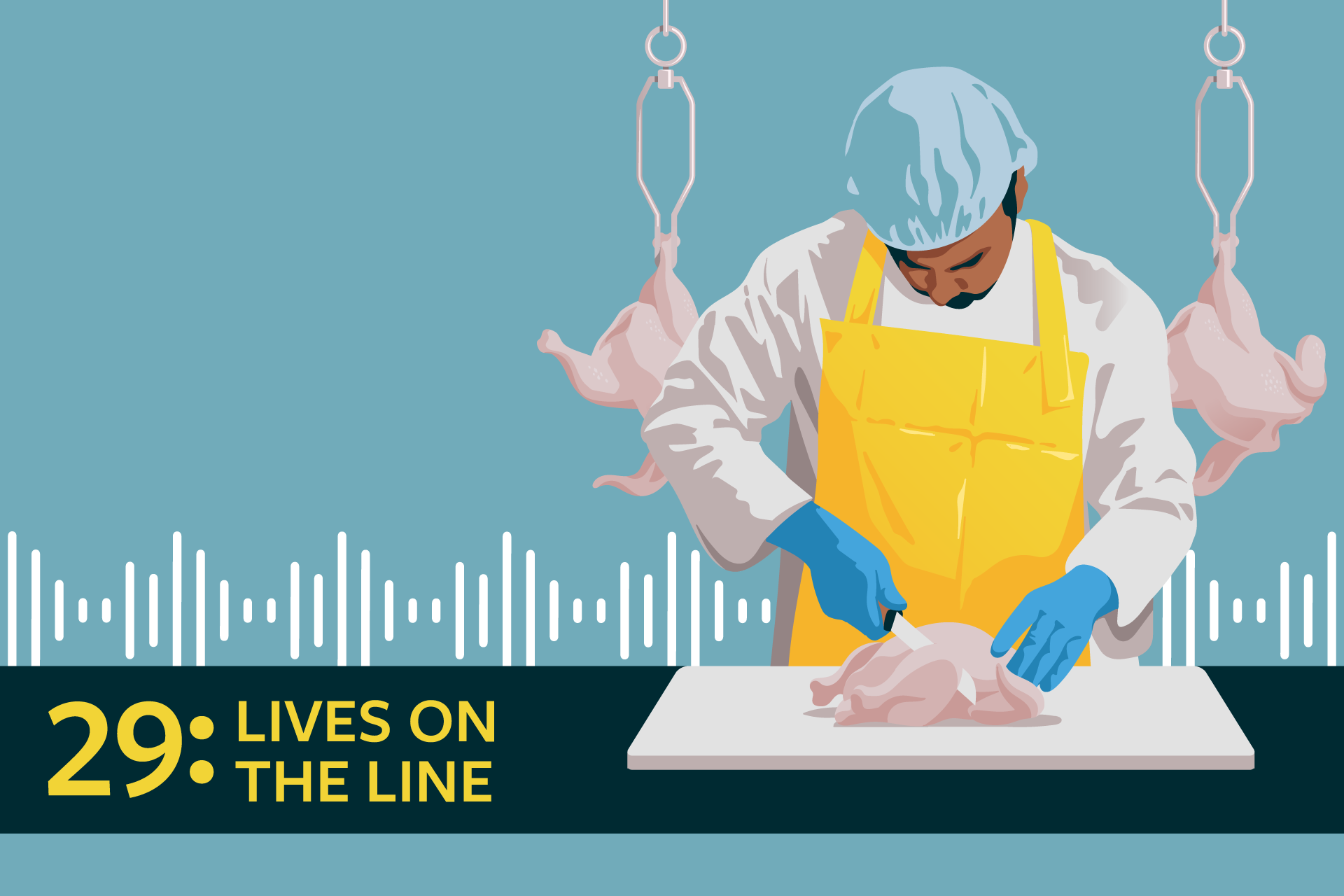The invisible immigrant labor sustaining America’s chicken obsession
In our very first episode of “What You’re Eating,” we traced that supermarket staple — the hot, glistening whole rotisserie chicken — all the way back to the farm, taking a hard look at all the corners you have to cut to supply chicken that cheap. Since then, chicken consumption has only increased, topping 102 pounds per person in 2025. But we’re not eating all those birds whole: Most chickens get divided into thighs, wings and boneless and skinless breasts, or processed even further into tenders and nuggets.
All that processing is a lot of work, and most of it has to be done by hand. If a chicken-processing plant is an assembly line, its workers are the machines, pumping out up to 175 birds per minute. That means workers often suffer from carpal tunnel syndrome and other repetitive stress injuries, along with high rates of accidents from sharp blades. There are sometimes fatal accidents from machinery and chemical spills, along with constant lung irritation from ammonia in the air. To top it all off, workers in some plants report being denied access to the bathroom and told to wear diapers instead.
If that sounds dehumanizing, that’s because it is. And to sustain that system, the chicken industry makes a point of hiring people it knows will be scared to fight back: undocumented immigrants, refugees and other recent arrivals to the U.S. In this episode, we speak to Alice Driver, author of “Life and Death of the American Worker: The Immigrants Taking on America’s Largest Meatpacking Company,” which focuses on Tyson plants in Driver’s hometown of Springdale, Arkansas. Collectively, the workers in a Tyson plant might speak anywhere from 20 to 50 languages. Whether they come from Mexico, El Salvador, Vietnam, Thailand or the Marshall Islands, they’ve all had to endure terrible work conditions with low pay.
With the Trump administration’s recent admission that its escalated deportation campaign could disrupt the food system enough to cause price shocks and shortages, many people are finally acknowledging the pivotal role that immigrants play on farms and in food processing. But the mistreatment of immigrant laborers predates the current administration’s draconian practices. The companies and governing bodies responsible for ensuring worker safety have long treated immigrant workers as disposable — unavoidable casualties in service of cheap meat. The first Trump administration’s executive order to keep meat plants open during the Covid pandemic is but one example: Despite widespread acknowledgment that those sites were superspreaders, the workers were deemed “essential” and forced to risk their lives, or else, their livelihoods. Now, as the current administration harasses immigrants at home and in their communities, it’s also threatening to strip them of the few protections they have at work, including removing the caps on line speeds in poultry plants. This greed-driven “more, more, more” agenda makes meatpacking jobs increasingly dangerous at the exact moment that speaking up about those dangers becomes riskier than ever.
Get the latest food news from FoodPrint.
By subscribing to communications from FoodPrint, you are agreeing to receive emails from us. We promise not to email you too often or sell your information.
Top photo by Evgeniy Kalinovskiy.
More Reading
MAHA wants to reform food, health and scientific systems — why is it ignoring nitrates?
December 18, 2025
From goldenseal to reishi, what is the true cost of the wellness industry's obsession with wild foods?
December 2, 2025
Can extended producer responsibility programs push food companies to use sustainable packaging?
October 16, 2025
The meat industry smeared the Planetary Health Diet. Now its creators are back with more evidence.
October 10, 2025
300 million male chicks are killed every year. Can in-ovo sexing change that?
September 30, 2025
How to avoid eating microplastics and chemicals in plastic
September 25, 2025
For these cocoa farmers, sustainability and the price of beans are linked
September 17, 2025
Salmon hatcheries: Unsuccessful conservation, insufficient regulation, and poor animal welfare
September 16, 2025
Can recycled soil blends support a more sustainable future?
September 5, 2025

